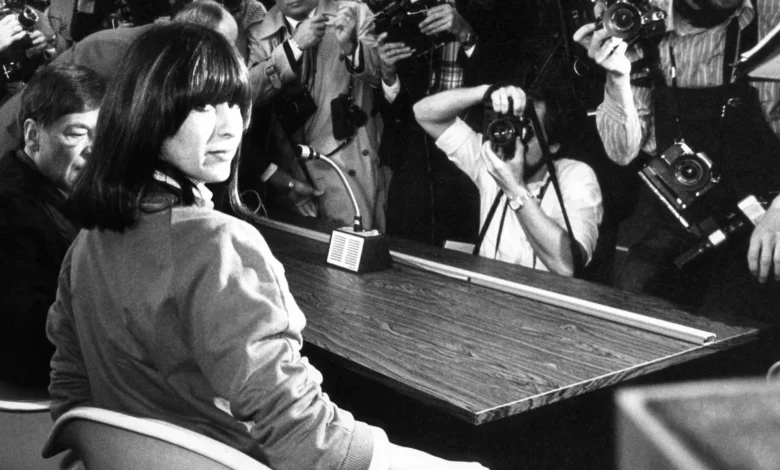The Tragic Yet Empowering Story of Marianne Bachmeier

The world has seen many courtrooms, crimes, and acts of justice—but few stories are as emotionally charged, controversial, and unforgettable as that of Marianne Bachmeier. Her name became known across Germany and the wider world in the early 1980s after a moment of tragedy transformed into one of the most talked-about acts of vigilante justice in modern history.
In this article, we will explore who Marianne Bachmeier was, what led her to make headlines, and how her story sparked ethical debates and continues to impact discussions around justice and morality today.
Who Was Marianne Bachmeier?
Marianne Bachmeier was an ordinary woman living in Lübeck, West Germany, during the late 20th century. She was a mother, working hard to build a life for her daughter, Anna. Their life, while not perfect, was filled with the love that defines the relationship between a parent and a child.
But on March 5, 1981, Marianne Bachmeier’s life changed forever. That was the day her 7-year-old daughter was kidnapped and murdered, an event that set off a chain reaction of emotional turmoil, national attention, and ultimately, a dramatic courtroom shooting that would stun the world.
The Kidnapping and Murder of Anna
On what was supposed to be a normal school day, Anna Bachmeier had a disagreement with her mother and decided to skip school. Tragically, this decision would be her last. That day, she encountered Klaus Grabowski, a 35-year-old man with a dark and disturbing past.
Grabowski was a convicted pedophile who had previously served time for sexually abusing young girls. He had voluntarily undergone chemical castration but later had hormone treatments to reverse it. Despite his past, he had been released and was living with a girlfriend, even though he was considered dangerous by social services.
Upon encountering Anna, he lured her into his home and held her captive for several hours. When he realized the severity of his actions and feared going back to prison, he strangled the young girl with a pair of his fiancée’s tights. He then packed her body in a box and left it near a canal.
The horror of this crime sent shockwaves through the community—and devastated Anna’s mother, Marianne.
The Breaking Point: A Courtroom Shooting
The trial of Klaus Grabowski began in March 1981. Public interest was high, and the courtroom was packed with reporters, law professionals, and spectators. Marianne Bachmeier attended the proceedings, struggling to cope with the pain of losing her daughter in such a brutal manner.
On the third day of the trial, something unprecedented occurred.
As Grabowski sat in the courtroom, awaiting his hearing, Marianne pulled out a small pistol she had smuggled inside her handbag. She fired seven shots, six of which hit Grabowski. He died at the scene.
In mere seconds, Marianne had done what many parents might fantasize about but would never dare act upon. She took justice into her own hands—an act that would earn both criticism and sympathy from people around the globe.
The Trial of Marianne Bachmeier
After the shooting, Marianne was arrested and charged with murder. Her case was as sensational as it was complicated. Was this a cold-blooded killing, or the desperate act of a grieving mother pushed to the brink?
During her trial, her defense argued that the act was a crime of passion—a spontaneous emotional reaction to the unbearable pain of losing her child. The prosecution, on the other hand, claimed that it was premeditated and that she had smuggled the weapon with the full intent of killing Grabowski.
In 1983, Marianne Bachmeier was convicted of manslaughter and unlawful possession of a firearm. The court sentenced her to six years in prison, of which she served three before being released.
Her sentence was controversial. Some argued it was too lenient; others believed it was already too much for a grieving mother who had suffered enough. Either way, her actions and the resulting trial raised important questions about justice, morality, and the limits of human endurance.
Public Reaction and Media Frenzy
The case attracted widespread media attention, not only in Germany but internationally. Public opinion was deeply divided. Many saw Marianne as a hero—a woman who stood up for her daughter and ensured her killer never had the chance to hurt anyone again. Others believed that taking the law into one’s own hands was dangerous and undermined the legal system.
Newspapers, television programs, and even psychologists weighed in. Some hailed her as a symbol of maternal courage, while others questioned the implications of vigilantism in a civilized society.
Interestingly, the media also highlighted the failings of the justice system. Why was a known pedophile like Grabowski free in the first place? Why had the authorities failed to protect innocent children like Anna?
Life After Prison
After serving her sentence, Marianne Bachmeier tried to rebuild her life. She moved to Nigeria for a time, then later settled in different parts of Europe. She gave interviews occasionally but largely stayed out of the public eye.
Marianne never claimed to be proud of her actions. In fact, in later interviews, she expressed deep sorrow, not only for the death of her daughter but also for the fact that she had taken a life. She admitted that the shooting was an emotional response and not necessarily a solution to her pain.
Despite the notoriety of her case, she remained a tragic figure—a woman whose life had been defined by one of the most horrifying experiences any parent could endure.
Ethical and Legal Implications
The case of Marianne Bachmeier continues to be a topic of legal and philosophical discussion. It raises fundamental questions:
- Can vigilante justice ever be justified?
- Should the emotional state of a person influence their sentencing?
- How can society better protect children from repeat offenders?
Legal scholars and ethicists have debated these issues extensively. While many agree that the legal system must maintain order and prevent acts of personal revenge, others understand that extreme situations can lead to extreme actions.
Her case has also inspired movies, books, and documentaries, ensuring that her story is not forgotten and continues to inform discussions around justice and morality.
Marianne Bachmeier: A Name That Echoes in Legal History
A Woman Torn by Grief, Remembered in Complexity
The story of Marianne Bachmeier is not a simple one. It’s a tale of tragedy, justice, emotion, and moral ambiguity. It’s about the unbearable loss of a child, the failure of a system, and a mother who did what many might consider unthinkable.
To some, she remains a hero; to others, a cautionary tale. But above all, she is a symbol of human vulnerability and the depth of parental love. Her name stands not just for an event, but for a broader conversation about justice, the law, and how societies respond to the most unimaginable crimes.
Final Thoughts: Justice, Emotion, and Humanity
The emotional weight of Marianne Bachmeier‘s story cannot be overstated. It’s a story that challenges our perception of justice and tests our empathy. When someone we love is harmed, how far would we go for justice? And at what cost?
While the courtroom shooting may have momentarily satisfied a thirst for revenge, it didn’t bring back Anna. And Marianne knew that. Her later years were filled with reflection, sorrow, and attempts at healing.
Her story continues to resonate not because it offers easy answers, but because it forces us to ask hard questions. In a world where justice is often slow and imperfect, Marianne Bachmeier’s tragic choice remains a stark reminder of what can happen when grief overpowers restraint—and when the system fails to protect the most innocent among us.





